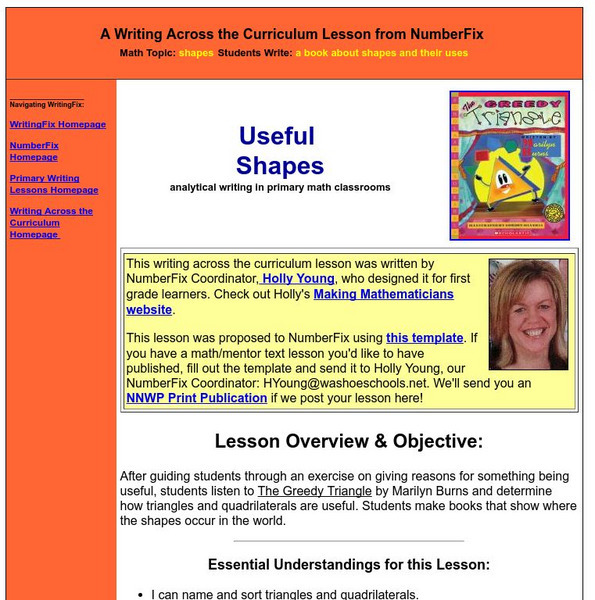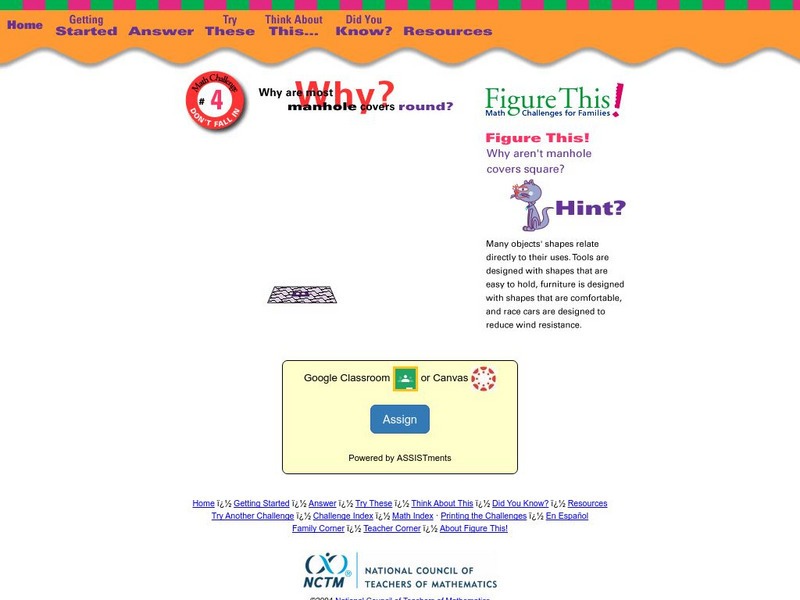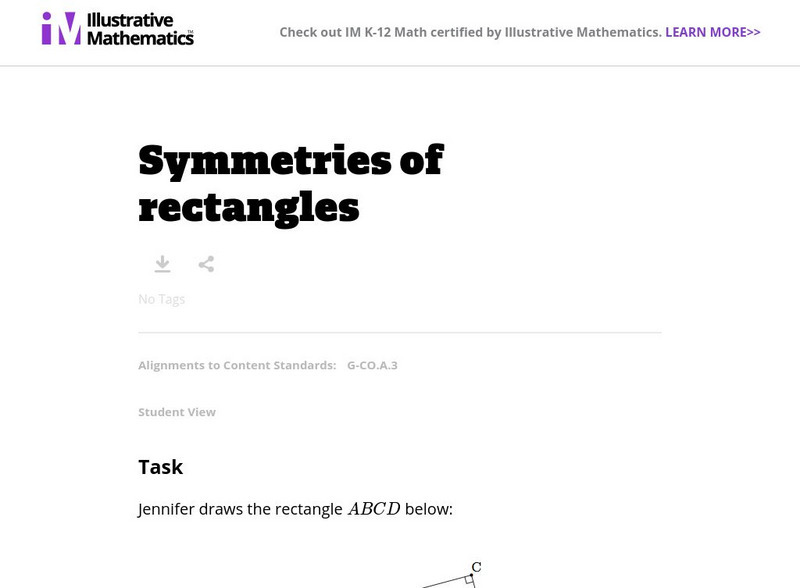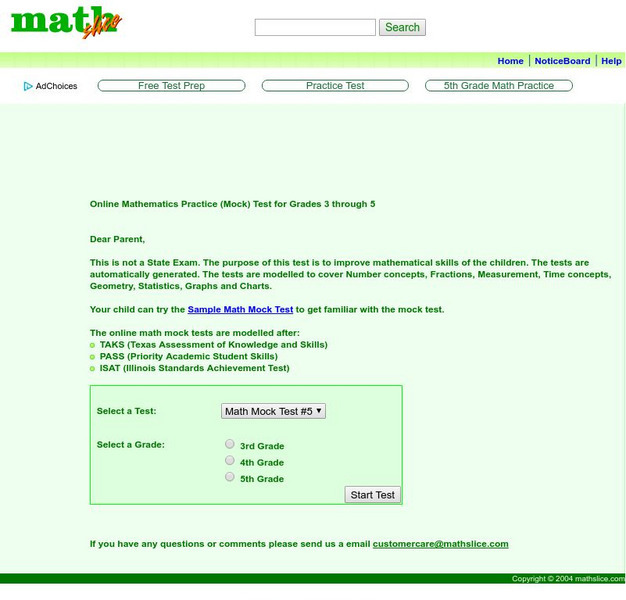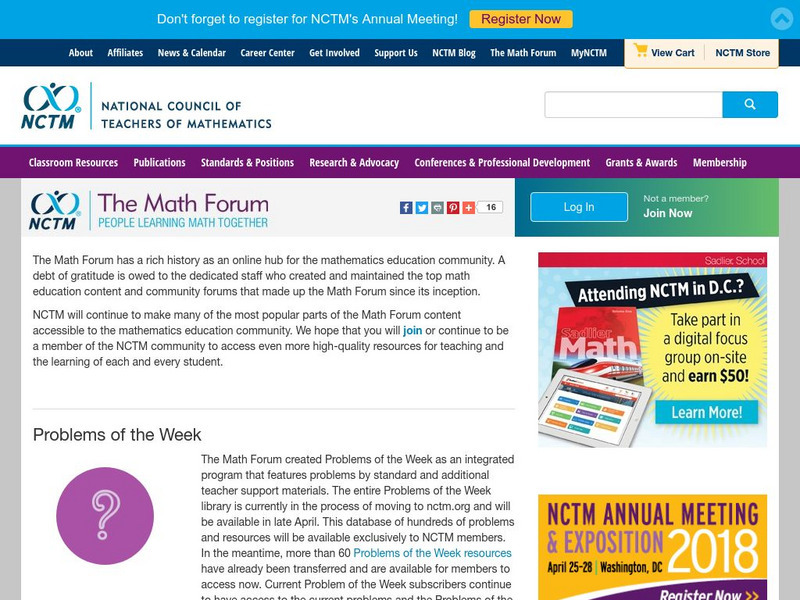Curated OER
No-Three-In-A-Line Again
Students interpret information and results in context while using words and symbols to generalize patterns. They use symmetry and angle properties of polygons to solve practical problems and identifying invariant properties under...
Curated OER
Modular Houses
Students, working in pairs, are presented with the problem. They are asked to design modular houses using four cubic modules, all the same size, which touch each other on complete faces. They must draw each of their houses on isometric...
Curated OER
Teaching the Tr'panier Trapezoid Kite
Students analyze how the parts of a system go together and how these parts depend on each other. They comprehend the forces in terms of strength and direction. Students observe, measure and describe weather indicators.
Curated OER
Perimeter and Area of Similar Figures
Students explore the relationships between similar figures. In this relationships between similar figures lesson, students discuss relationships between perimeter, circumference, area, surface area, and volume of similar figures through...
Curated OER
How Big Is Your Heart?
Students complete a performance about the heart. In this heart lesson plan, students learn about the heart functions and then perform them.
Illustrative Mathematics
Illustrative Mathematics: Alike or Different Game
Students work in pairs and take turns drawing two cards. These cards have pictures of different shapes. The students are asked to describe what is similar or different between the two shapes. This type of task lays the foundation for the...
Writing Fix
Writing Fix: Useful Shapes: Analytical Writing in Primary Math Classrooms
In this instructional activity, the book entitled The Greedy Triangle, written by Marilyn Burns, is shared. After sharing this read-aloud book, young scholars will illustrate pictures that incorporate the triangle. Then will write three...
National Council of Teachers of Mathematics
Nctm: Figure This: Don't Fall In
Have you ever wondered why manhole covers are round? Believe it or not, there is a logical, mathematical reason. See if you can figure it out in this NCTM Math Challenge for Families activity. A one-page activity with suggested life...
Illustrative Mathematics
Illustrative Mathematics: G Mg How Many Leaves on a Tree?
This is a mathematical modeling task aimed at making a reasonable estimate for something which is too large to count accurately, the number of leaves on a tree, taking into account the tree size and the density of the leaves. Aligns with...
Illustrative Mathematics
Illustrative Mathematics: G Co Symmetries of Rectangles
This task examines the rigid motions which map a rectangle onto itself. The emphasis here is on careful reasoning using the definitions of reflections and rotations. Aligns with G-CO.A.3.
CK-12 Foundation
Ck 12: Interactive Middle School Math 7 for Ccss
A complete CCSS Grade 7 Mathematics course that includes interactives in every lesson, plus videos, hands-on activities, and questions with immediate feedback. Every lesson also has specifically chosen 'Related Modalities' that teach the...
Annenberg Foundation
Annenberg Learner: Patterns in Mathematics: Guess My Button
This website gives students an opportunity to sort and classify attributes of a group. The applet responds to each selection made and guides student to the next step.
Math Slice
Math Slice: Online Mathematics Practice (Mock) Tests for Grades 4 Through 5
A collection of mock math tests, designed for grades 3-5, modeled after portions of standardized tests.
National Council of Teachers of Mathematics
The Math Forum: The Cylinder Problem: Elementary Lesson
Use this lesson plan to help students learn about cylinders. Students will be creating cylinders, and comparing them and their capacity. This engaging, hands-on lesson will hold student interest and be very beneficial to student learning.
National Council of Teachers of Mathematics
The Math Forum: The Cylinder Problem: Middle School Lesson
This lesson offers an interesting, hands-on experience for middle school students studying cylinders. Students will create cylinders, and measure and compare their volumes.
Maths Challenge
Maths challenge.net: Perimeter Sequence
A "one star" geometry problem that requires finding the visual pattern and applying logic with basic math skills to find the perimeter from the sequence.






